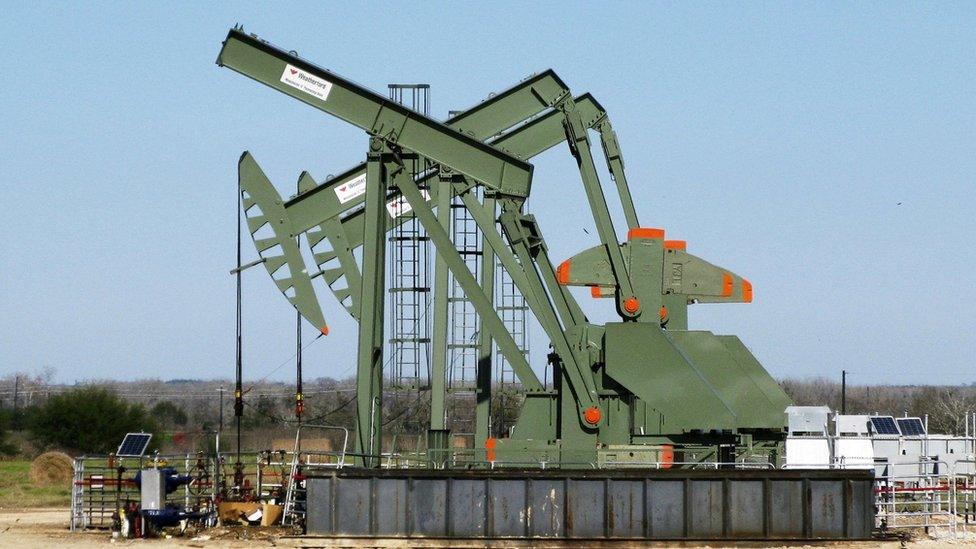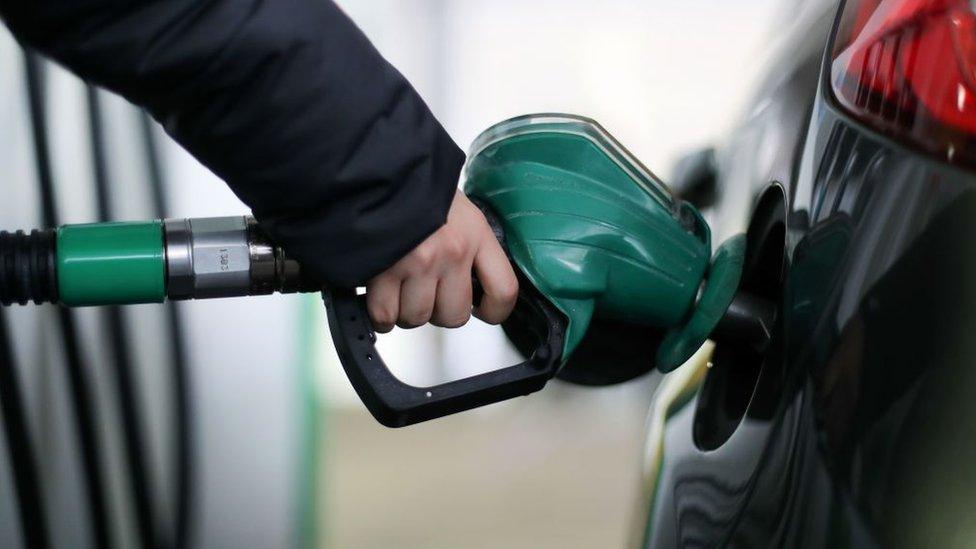Oil pushes past $80 as Iran fears mount
- Published

Oil has risen above $80 a barrel to its highest level this year amid concerns about supplies from Iran and a fall in US stockpiles.
Brent crude rose more than 1% to $80.13 - the first time it has breached $80 since late May.
The rise reflects concern about the impact of US sanctions against Iran that will target oil exports.
"Iran is increasingly becoming the preoccupation of the crude market," said consultants JBC Energy.
"The last couple of weeks have seen the expected squeeze on Iranian crude flows taking shape, with overall outflows down markedly."
Gordon Gray, HSBC's global head of oil and gas equity research, said there were "real risks" that Brent could hit $100 a barrel.
"The fact that much higher supply is already needed from the likes of Saudi Arabia - and the low levels of spare capacity remaining - leave the global system highly vulnerable to any further significant outage," he said.
'Huge uncertainty'
Russian energy minister Alexander Novak said global oil markets were fragile due to geopolitical risks and supply disruptions.
He also warned of the impact of US sanctions against Iran: "This is a huge uncertainty on the market - how countries, which buy almost 2 million barrels per day of Iranian oil, will act. The situation should be closely watched, the right decisions should be taken."
Opec, the Organization of the Petroleum Exporting Countries that accounts for 40% of global production, cut its forecast for oil demand growth next year in its monthly report.
Oil traders were also watching the progress of category 4 Hurricane Florence, which is expected to make landfall in the US by Friday.
US crude rose 91 cents to $70.16 a barrel.
In January Brent crude hit $70 a barrel for the first time since December 2014.
- Published11 January 2018
